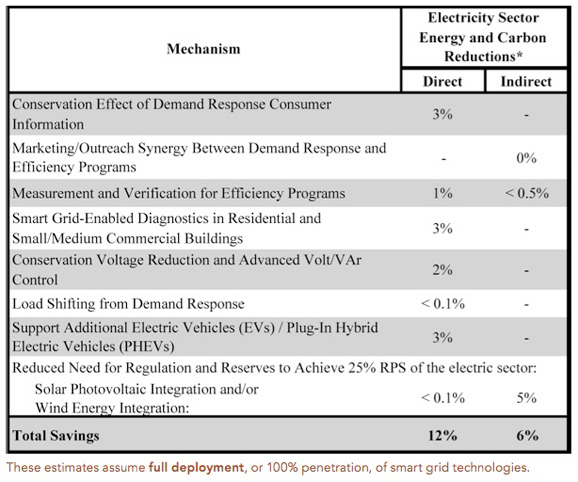In a Q&A with Shareable.net, Zipcar founder Robin Chase argued that the United States power grid should carry information as well as electricity, on the grounds that shareable infrastructure would make the grid "smarter," or more efficient. Now a new report from the US Department of Energy "shows a direct link between the smart grid and carbon emissions."
A "smart" grid encompasses a number of different mechanisms. It would allow owners of residential and commercial buildings to directly measure their energy usage in real time, helping them to manage costs; expand the number of plug-in hybrid electric vehicles; and merge communications and power systems that are now managed separately. A smart grid would also be more compatible with renewable, sustainable energy sources like wind and solar.
"The Smart Grid: An Estimation of the Energy and CO2 Benefits" finds that…
The nation could prevent the equivalent of 442 million metric tons, or 66 typical coal power plants' worth, of carbon emissions from entering the atmosphere each year. Those 66 power plants produce the equivalent amount of electricity needed to power 70 million of today's homes.
"By making the grid smart, we make it more efficient and more accommodating of renewables, and we're able to cut down on the amount of carbon we emit to generate the electricity we need," said [research scientist] Rob Pratt…
Until recently, the fields of emissions research and smart grid research have been largely separate, even while both strive to secure the nation's energy future. The report joins a growing body of literature that allows researchers, analysts, investors and policymakers to make a definitive link between the two areas of study – and defines the linkage as a legitimate area for further research and technology development by government. It also informs the business case for smart grid investments by utilities and others.
"This report has significant implications for public and private sector interests engaging in future research, financial and policy decisions in this area," said Mike Davis, PNNL associate laboratory director for Energy and Environment. "Reducing our dependence on foreign oil and reducing our carbon footprint can go hand-in-hand and be profitable."
In this video, the researchers discuss their results:









